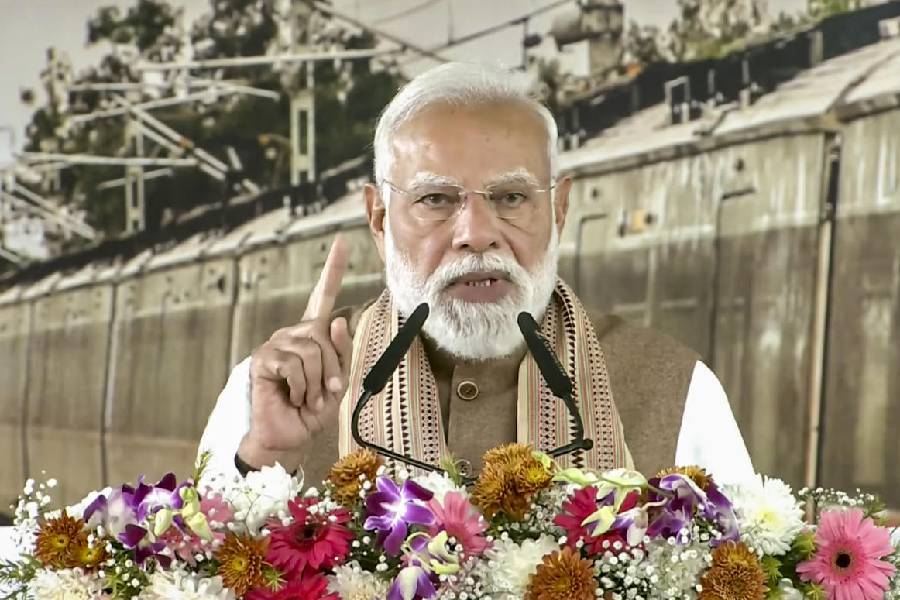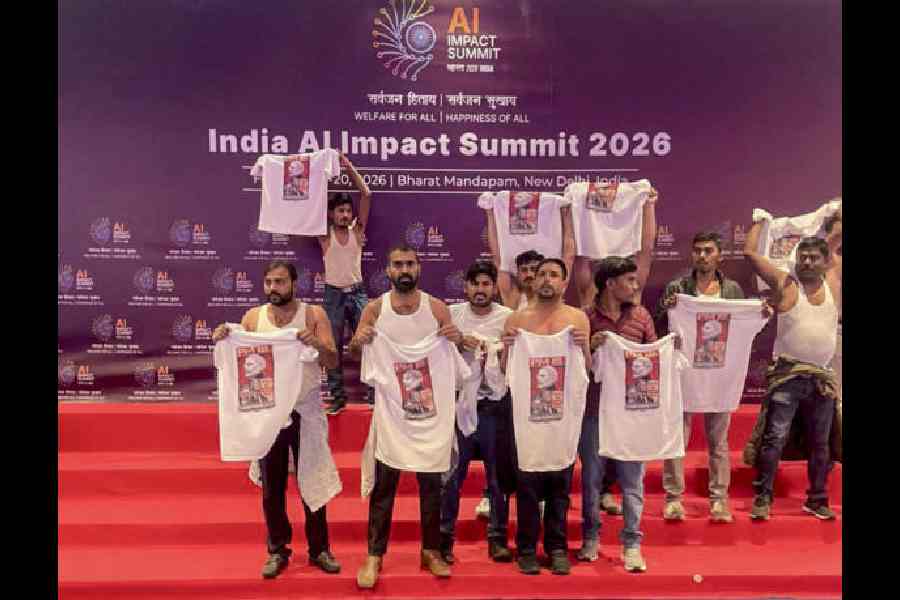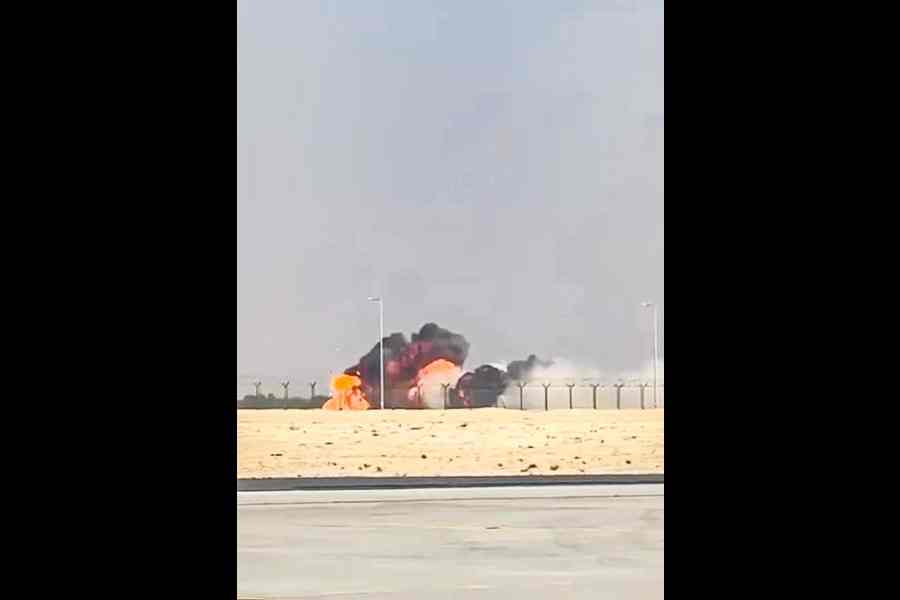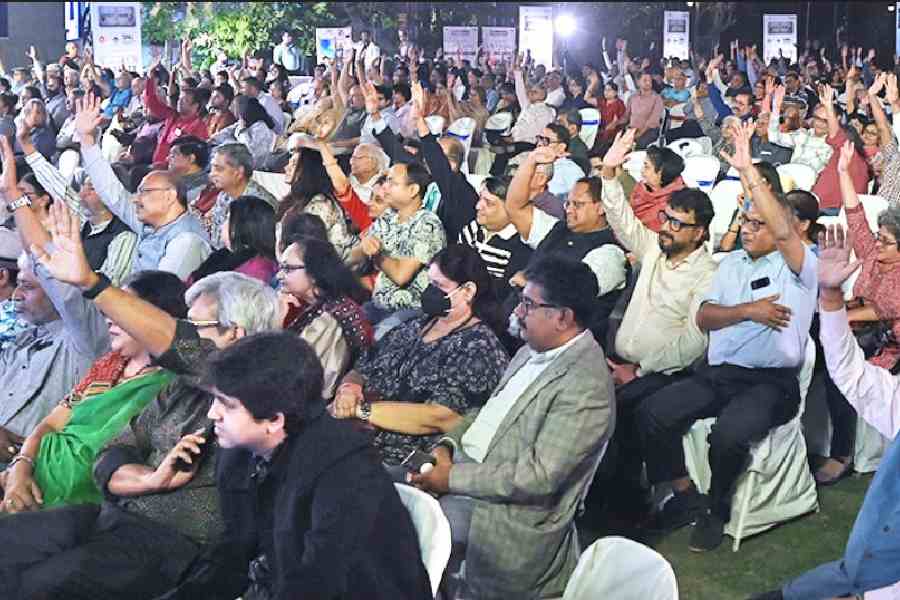 |
Washington, Sept. 7: George W. Bush has been given credit for securing the exemption for India from the guidelines of the Nuclear Suppliers Group, but yesterday’s landmark consensus in Vienna would not have come about without meticulous planning in South Block.
Indian diplomacy picked out the dissenters in the NSG one by one and broke up a group of eight states which had come together soon after the confidence vote in Parliament in July, vowing to kill the Indo-US nuclear deal by holding it up in Vienna.
Well before the Bush administration took India’s case to the NSG, which controls the global trade in nuclear material and technology, the ministry of external affairs had identified New Zealand and Austria as the most difficult countries to win over to its side.
Hardeep Puri, secretary for economic relations in the ministry, returned from a reconnaissance mission in Wellington a week before the NSG met in Vienna on August 21 and strongly recommended a visit to India by New Zealand’s governor-general, Anand Satyanand.
An invitation for Satyanand had been pending since he met the minister for overseas Indian affairs, Vayalar Ravi, in New Delhi in January and attended the Pravasi Bharatiya Divas gathering of persons of Indian origin.
Satyanand’s arrival in Delhi on a “state” visit was deliberately timed for the first working day after the NSG meeting concluded in Vienna.
The governor-general could not have shaken the hands of his hosts on the lawns of Rashtrapati Bhavan tomorrow with any warmth or without a guilty conscience if New Zealand became the only country in the 45-member NSG that blocked a consensus on India.
Puri spent considerable time last month at “The Beehive”, the seat of the cabinet in Wellington, activated some old contacts from his days as an ambassador in Geneva and reported back that Satyanand’s role in New Zealand was much more than that of a titular governor-general.
Satyanand and his wife Susan were like the left and right hands of the famous Labour Prime Minister David Lange in his first, unsuccessful national poll campaign in 1975.
New Zealand’s current Prime Minister, Helen Clark, is a protege of Lange, and South Block accepted Puri’s assessment that India could use Satyanand as a chip in its moves to neutralise the Clark government’s uncompromising opposition to what India wanted from the NSG.
New Zealand does not allow the US navy’s nuclear-powered or nuclear-armed ships into its ports even though it is a member of the Australia, New Zealand, United States Security Treaty. It is a nuclear-free zone under a 1987 law.
This is the first time that the country has bent its strict approach on any nuclear issue, under carefully planned coercion by India.
The next country that India had to pick was Austria, a neutral state since World War II — like Switzerland — and another steadfast opponent of anything nuclear.
Austria is so anti-nuclear that it has a fully constructed nuclear power plant in Zwentendorf that is lying idle and it has frequent quarrels with its neighbours, the Czechs and the Slovaks, over their nuclear power units.
Fortunately, New Delhi had experience in dealing with Austrian opposition to India’s nuclear policy: some of the dramatis personae during Austria’s onslaught against the Indian nuclear tests in 1998 happened to be at the centre of that country’s foreign policy in the build-up to the NSG meetings.
Shortly after the Pokhran-II tests, Austria had sent its deputy foreign minister to New Delhi to give the BJP-led government a strong lecture.
The country had joined the European Union only three years earlier and since it was holding the EU presidency for the first time, the minister was keen to make a mark by throwing her weight around Raisina Hill.
The minister was tempered and given a reality check by Austria’s then ambassador in New Delhi, Herbert Traxl, and his deputy Peter Launsky-Tieffenthal, who know India very well.
Traxl is married to Kathak maestro Shovana Narayan and Launsky-Tieffenthal’s wife is well-known filmmaker Aradhana Seth, sister of author Vikram Seth and daughter of India’s first woman chief justice, Leila Seth. Last week, Launsky-Tieffenthal played a crucial role in negotiations between India and Austria and became the public face of Austrian nuclear policy during the NSG meeting.
Then there was China. Foreign secretary Shiv Shankar Menon used his insights into China, acquired since he went to school in Lhasa, to wear down Beijing into not standing up against a consensus in Vienna.
Important visits from abroad are normally announced only one or two days before they take place, partly for security reasons. But Menon left instructions before he went to Vienna in the third week of August that the foreign ministry should announce the visit of Chinese foreign minister Yang Jiechi to Calcutta and New Delhi well in advance.
The Chinese abhor unpleasantness in diplomatic exchanges and are fanatical about preserving face.
Since Yang’s visit from today had been announced in advance, the Chinese would not take an open stand against NSG exemption in Vienna and then pow-wow with Indians in New Delhi the following day. Nor could they cancel Yang’s visit except by risking much. Especially since Yang is opening China’s consulate in Calcutta on Monday, a happy occasion which the Chinese have been working on for several years.










